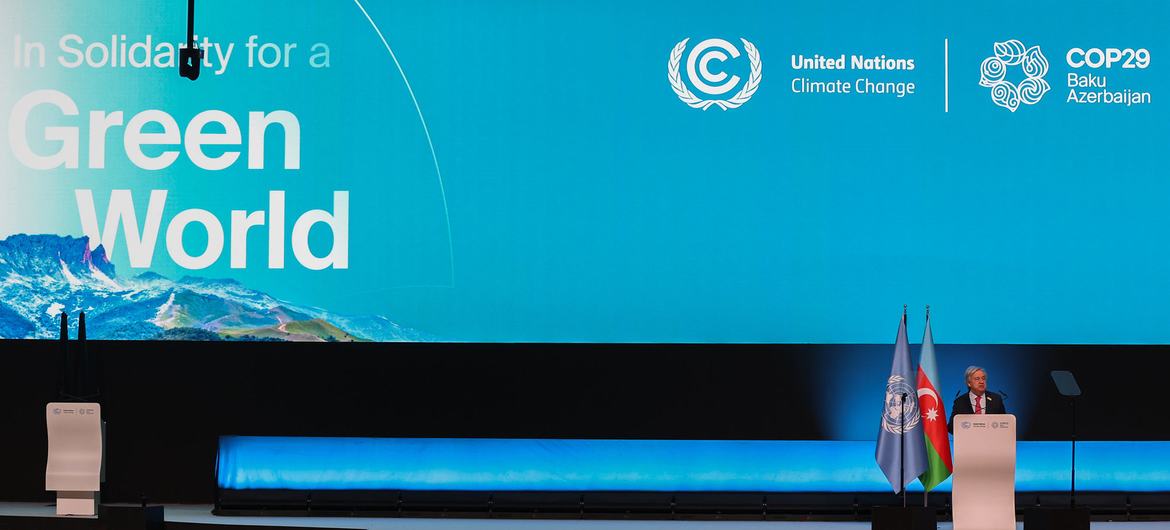
# Four Additional Nations Join the Global Methane Pledge, Enhancing the Battle Against Climate Change
In a notable advancement for climate initiatives, four more nations have committed to the *Global Methane Pledge*, increasing the total number of signatories to 159. Among the new members are Azerbaijan and Tajikistan, both of which possess significant oil and gas industries and are recognized as major methane emitters. Introduced at the COP26 climate summit in Glasgow in 2021, the pledge aims to cut global methane emissions by at least 30% from 2020 levels by 2030. This groundbreaking commitment is viewed as an essential action to mitigate rising global temperatures and tackle the urgent issue of climate change.
## The Significance of Methane Reduction
Methane, a powerful greenhouse gas, is often referred to as the “low-hanging fruit” in climate strategy due to its high potency and the comparative simplicity of its mitigation. Its warming potential is about 80 times stronger than that of carbon dioxide over a two-decade span, making it vital for short-term climate objectives. Although methane stays in the atmosphere for a considerably shorter duration than CO₂, addressing these emissions can produce immediate and substantial benefits in the battle against global warming.
Studies show that methane emissions have not declined significantly in recent years, even with the growing awareness of their contribution to global warming. With about 30% of anthropogenic methane emissions arising from fossil fuel extraction, cutting emissions in the energy sector is considered a significant opportunity for climate action. The Clean Air Task Force (CATF) asserts that with the technologies currently available, it is feasible to reduce methane emissions by at least 45% by 2030, potentially preventing a 0.3°C increase in global temperatures by the 2040s.
## Developments and Prospects at COP29
The COP29 climate conference, taking place this year in Baku, Azerbaijan, has created an opportunity for nations to assess their progress regarding the Global Methane Pledge, secure financing, and showcase innovative solutions for reducing methane emissions. Hosting the event in Azerbaijan, a country with a robust oil and gas sector, signifies a shift in the discourse surrounding climate action. For industries traditionally perceived as major sources of greenhouse gas emissions, events like COP29 present chances to adopt new approaches and pledge to minimize their environmental impact.
A prominent topic at COP29 has been the wider category of “super pollutants,” encompassing methane, nitrous oxide, and hydrofluorocarbons. Methane has taken a leading role due to its short-term warming effects, and its new inclusion in countries’ nationally determined contributions (NDCs) under the Paris Agreement underscores its increasing importance in climate talks.
### A Shift Towards Minimizing Emissions from Organic Waste
Methane emissions from organic waste have surfaced as a crucial focus at COP29. This source, which includes food scraps, plant debris, paper, and industrial sludge in landfills, ranks as the third-largest origin of human-made methane globally, trailing agriculture and the fossil fuel sector. For the first time, the COP29 presidency prioritized organic waste management, culminating in a declaration backed by over 30 nations, including the U.S. and Russia. Collectively, these two countries account for nearly half of methane emissions from organic waste, emphasizing the urgent need for concerted action in this domain.
To tackle methane linked to organic waste, nations are pledging to establish specific targets within their NDCs. Proven, cost-effective methods already exist, such as minimizing organic waste generation, redirecting waste for processing (e.g., composting or anaerobic digestion), and capturing methane from landfills through gas recovery technologies. During COP29, countries and organizations announced over $500 million in new funding for methane reduction initiatives across the energy, waste, and agricultural sectors.
## The Worldwide Influence of the EU Methane Import Standard
The European Union’s *Methane Import Standard*, launched earlier this year, is already shaping global methane management approaches. This standard mandates that fossil fuel imports into the EU comply with stringent methane emissions standards, motivating exporting countries to adopt cleaner extraction methods. Existing and potential trade partners are increasingly implementing measures to meet these regulations, establishing a model for methane governance and enhancing the EU’s position as a leader in global climate policy.
## Transforming Commitments Into Tangible Actions
While commitments such as the Global Methane Pledge indicate progress, converting these pledges into effective actions remains a crucial challenge. The exchange of knowledge and technology will be essential to ensure that methane mitigation strategies benefit countries across varying economic levels. In this vein, the Climate and Clean Air Coalition (CCAC) and CATF have recently initiated a global program aimed at supporting middle- and low-income nations in tackling methane emissions. This initiative utilizes resources like methane-tracking satellites and targeted financing to aid nations in forming and executing effective abatement strategies.
Furthermore, countries are showcasing progress at platforms like COP29, revealing technologies that detect methane leaks,